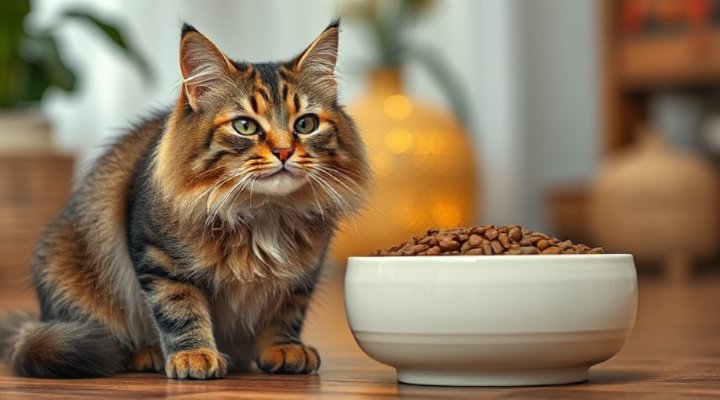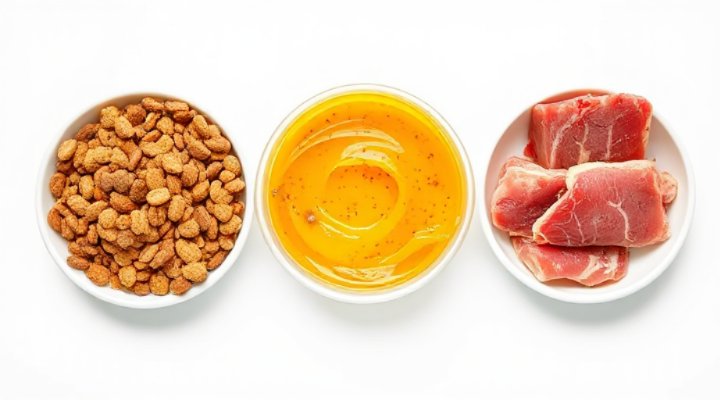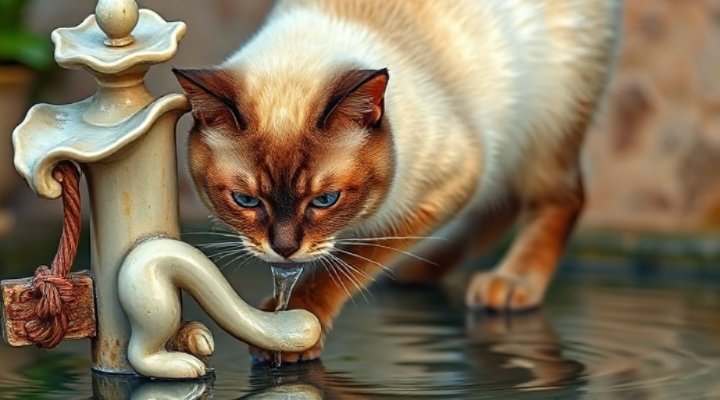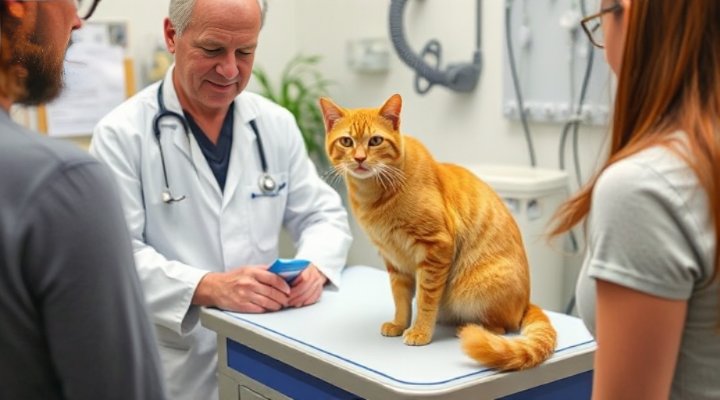As cat owners, we all want what’s best for our feline companions, and that starts with their diet. Providing the right cat food is essential for your cat’s health, preventing common issues like obesity and urinary tract problems. But with so many options available, how do you choose the best one?

Understanding Your Cat’s Nutritional Needs
Cats are obligate carnivores, which means they require a diet high in animal protein. Unlike dogs, who can thrive on plant-based nutrients, cats need specific amino acids like taurine that are only found in meat. Therefore, when selecting cat food, the protein source should always be the primary ingredient.
For example, my own cat, Whiskers, went through a phase of dull coat and low energy until I switched her to a higher protein diet. The difference was remarkable! Similarly, if you’re dealing with a picky eater like Whiskers, you might find our guide on walking your cat on a leash helpful for building their appetite through exercise.

Types of Cat Food: Pros and Cons
There are three main types of cat food to consider:
- Dry food: Convenient and cost-effective, but often higher in carbohydrates
- Wet food: Higher moisture content, which helps with hydration
- Raw food: Mimics a cat’s natural diet but requires careful handling
The American Veterinary Medical Association recommends a combination of wet and dry food for most cats. This approach provides both convenience and the hydration benefits of wet food.

How to Read Cat Food Labels Like a Pro
Deciphering cat food labels can be confusing, but here’s what to look for:
- The first ingredient should be a named animal protein (e.g., ‘chicken’ not ‘meat’)
- Avoid foods with excessive fillers like corn, wheat, or soy
- Look for AAFCO (Association of American Feed Control Officials) certification
Remember, just because a brand is expensive doesn’t necessarily mean it’s better. Some mid-range brands offer excellent nutrition at reasonable prices.
Special Dietary Considerations
Some cats have specific dietary needs. For instance:
- Senior cats may need food with joint support
- Kittens require higher calorie and protein content
- Cats with urinary issues often benefit from specialized formulas
If you’re unsure about your cat’s specific needs, consult with your veterinarian. They can provide personalized recommendations based on your cat’s age, weight, and health status.

The Importance of Hydration
Many cat owners focus solely on food, forgetting that hydration is equally important. Cats naturally have a low thirst drive, which is why wet food can be beneficial. Consider these hydration tips:
- Provide multiple water sources around your home
- Consider a cat water fountain, as many cats prefer running water
- Add water to dry food when possible
Proper hydration can help prevent urinary crystals and kidney disease, common issues in cats.

Transitioning to a New Food
When changing your cat’s diet, do it gradually over 7-10 days to avoid digestive upset. Start by mixing a small amount of the new food with the old, gradually increasing the proportion. If you notice any adverse reactions, slow down the transition or consult your vet.
For more tips on caring for your feline friend, check out our article on cat clicker training, which can help with behavioral issues that sometimes stem from dietary problems.
Common Mistakes to Avoid
Even well-meaning cat owners can make these cat food mistakes:
- Overfeeding (follow package guidelines based on weight)
- Feeding dog food to cats (it lacks essential nutrients)
- Assuming all human foods are safe (many are toxic to cats)
The ASPCA provides a comprehensive list of toxic plants and foods for cats that’s worth bookmarking.
Final Thoughts
Choosing the right cat food is one of the most important decisions you’ll make for your pet’s health. By understanding your cat’s nutritional needs, reading labels carefully, and making gradual changes, you can ensure your feline friend enjoys a long, healthy life. Remember, every cat is unique, so what works for one may not work for another. When in doubt, consult with your veterinarian for personalized advice.
Related Keywords: best cat food brands, homemade cat food recipes, grain-free cat food, senior cat nutrition, kitten feeding schedule
